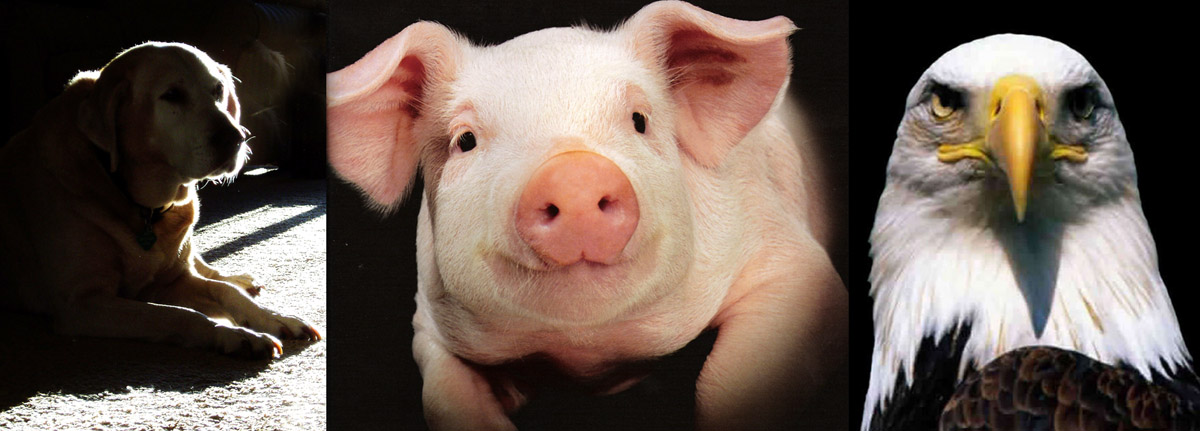Do animals think? And if so, then what? Do animals feel? Do they have souls? This article from TIME is a nice overview of what we know about the thoughts and feelings of non-human animals:
… But one by one, the berms we’ve built between ourselves and the beasts are being washed away. Humans are the only animals that use tools, we used to say. But what about the birds and apes that we now know do as well? Humans are the only ones who are empathic and generous, then. But what about the monkeys that practice charity and the elephants that mourn their dead (perhaps as much as humans)? Humans are the only ones who experience joy and a knowledge of the future. But what about the U.K. study just last month showing that pigs raised in comfortable environments exhibit optimism, moving expectantly toward a new sound instead of retreating warily from it? And as for humans as the only beasts with language? Kanzi himself could tell you that’s not true.
All of that is forcing us to look at animals in a new way. With his 1975 book “Animal Liberation,” bioethicist Peter Singer of Princeton University launched what became known as the animal-rights movement. The ability to suffer, he argued, is a great cross-species leveler, and we should not inflict pain on or cause fear in an animal that we wouldn’t want to experience ourselves. This idea has never met with universal agreement, but new studies are giving it more legitimacy than ever. It’s not enough to study an animal’s brain, scientists now say; we need to know its mind.
There are a lot of obstacles in the way of our understanding animal intelligence — not the least being that we can’t even agree whether nonhuman species are conscious. We accept that chimps and dolphins experience awareness; we like to think dogs and cats do. But what about mice and newts? What about a fly? Is anything going on there at all? A tiny brain in a simple animal has enough to do just controlling basic bodily functions. Why waste synapses on consciousness if the system can run on autopilot? Where that line should be drawn is impossible to say, since our judgment is clouded by our feelings about any given species. A cockroach likely has no less brainpower than a butterfly, but we’re quicker to deny it consciousness because it’s a species we dislike. Still, most scientists agree that awareness is probably controlled by a sort of cognitive rheostat, with consciousness burning brightest in humans and other high animals and fading to a flicker — and finally blackness — in very low ones. “It would be perverse to deny consciousness to mammals,” says Steven Pinker, a Harvard psychologist and the author of “The Stuff of Thought”. “Birds and other vertebrates are almost certainly conscious too. When it gets down to oysters and spiders, we’re on shakier ground.”
You can read the complete article at TIME.
Source: Kottke



2 Comments
i’m still struggling to accept that humans are conscious, and i’m not joking
LOL!!!!!!!!!!!!